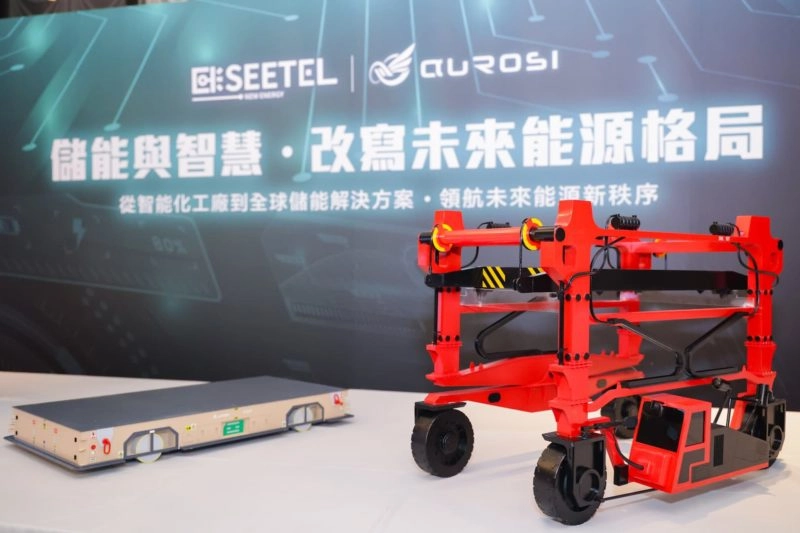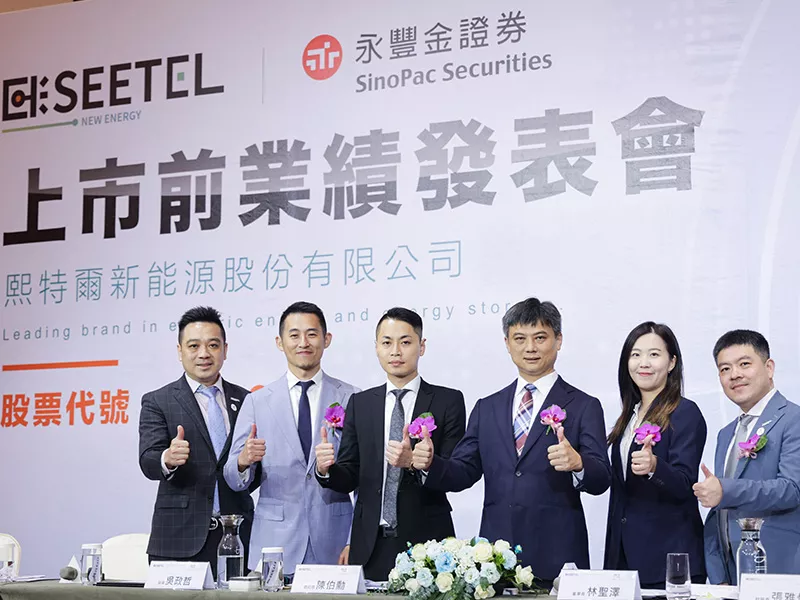
Seetel New Energy is scheduled to be listed on the Innovation Board by the end of June. A report by SinoPac Investment Service stated that, considering Seetel’s highly integrated hardware and software technologies, along with the increasing shipment of its systems, the scale of its high-margin EMS and maintenance outsourcing services continues to grow. Its high-purity MIT (Made in Taiwan) products also enhance its competitiveness in securing overseas orders. The Company’s revenue is expected to surpass NT$10 billion this year, with after-tax earnings per share (EPS) projected to reach NT$18.4.
Seetel New Energy recently held a pre-IPO performance briefing at the Mandarin Oriental Hotel, which attracting a full house. Outside the venue, the Company also showcased various industry-academia collaboration projects, including an intelligent microgrid control application developed with National Central University and a next-generation power battery module developed and assembled for the NTU racing team.
According to the report, Seetel and its subsidiaries primarily engage in energy technology services, focusing on technology and operations. Their businesses cover engineering, procurement and construction (EPC) of energy storage projects, battery manufacturing plants, AI-driven EMS software integration technologies and energy storage systems, aiming to become an international energy system integrator.
Seetel specializes in battery module and BMS development and design, intelligent EMS systems, and operations and maintenance management. It is estimated that by 2026, the Company’s cumulative grid-connected capacity will reach 225 MW. Seetel also established Aurosi Precision to focus on battery module design and power management technology development, providing one-stop services for energy storage systems. The Company has already built two battery production lines and a virtual power plant demonstration center in Taichung, with Aurosi batteries accumulated 596 MWh in shipments.

Aurosi Precision officially began mass production in Q4 2024, with 2025 battery shipments expected to reach 800 MWh. The MIT production line is expected to give Seetel a competitive edge in exporting products to overseas markets. In the future, Seetel’s in-house battery products will be paired with its software to deliver highly integrated system shipments and the scale of production is set to become the largest in Taiwan.
Since 2022, Seetel has completed dReg and E-dReg projects in Xindian, Linkou, Chiayi and Changhua, Taiwan. It is anticipated that two E-dReg projects in Kaohsiung, totaling 200 MW, will be completed in succession. Upon completion, Seetel will take over the long-term operation and maintenance of the sites for a period of 10 to 15 years, ensuring stable future revenue and reducing operational volatility.
SinoPac Investment Service believes that Seetel’s primary growth momentum this year will be driven by energy storage projects and battery manufacturing. The visibility of battery manufacturing orders is strong. As projects are completed and batteries shipped, maintenance and EMS services will become another key pillar of Seetel’s operations. It is projected that with partial completion of project sites and battery product shipments, the Company’s revenue will exceed NT$10 billion this year, with EPS expected to reach NT$18.4.
(Image source:Seetel)

